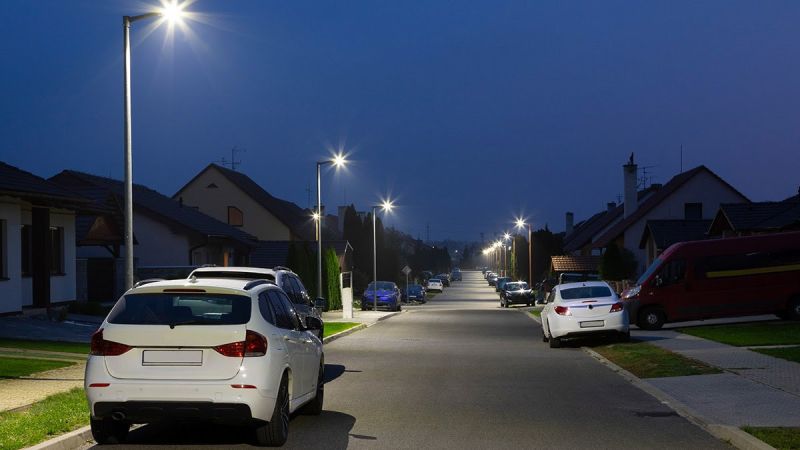Smart Pole technology is rapidly transforming urban landscapes, revolutionizing the way cities function and interact with their inhabitants. These innovative poles are not just lighting up streets; they are also serving as hubs for a range of smart city technologies, improving safety, connectivity, and sustainability. In this comprehensive guide, we’ll explore the various aspects of Smart Pole technology and its impact on urban infrastructure.
Smart Pole: Enhancing Urban Connectivity
Smart Poles are more than just lighting fixtures; they are the backbone of a connected city infrastructure.
Wireless Connectivity
Smart Poles serve as nodes for wireless communication, enabling seamless connectivity across urban areas.
5G Integration
With 5G integration, Smart Poles support ultra-fast internet speeds, facilitating a wide range of smart city applications.
IoT Integration
Integration with the Internet of Things (IoT) allows Smart Poles to collect and transmit data, supporting various city services.
Smart Pole: Advancing Public Safety
One of the primary functions of Smart Poles is to enhance public safety through advanced monitoring and surveillance capabilities.
CCTV Cameras
Equipped with high-definition CCTV cameras, Smart Poles provide round-the-clock surveillance, enhancing public safety and security.
Emergency Response Systems
Integrated emergency response systems on Smart Poles enable quick responses to accidents, natural disasters, and other emergencies.
Environmental Monitoring
Smart Poles can monitor environmental parameters such as air quality and temperature, helping cities address pollution and climate-related challenges.
Smart Pole: Sustainable Lighting Solutions
In addition to their technological capabilities, Smart Poles also offer energy-efficient lighting solutions, contributing to sustainability efforts in urban areas.
LED Lighting
Equipped with energy-efficient LED lighting, Smart Poles help cities reduce energy consumption and lower carbon emissions.
Lighting Automation
Smart Poles feature lighting automation systems, adjusting brightness based on ambient light levels and occupancy, further conserving energy.
Solar Power Integration
Many Smart Poles incorporate solar panels, harnessing renewable energy to power lighting and other smart city applications.
Smart Pole: Promoting Urban Mobility
Smart Poles play a crucial role in promoting urban mobility and improving transportation systems within cities.
Electric Vehicle Charging
Some Smart Poles are equipped with electric vehicle charging stations, supporting the transition to sustainable transportation.
Traffic Management
Integrated traffic monitoring systems on Smart Poles help cities manage traffic flow, reducing congestion and improving overall mobility.
Pedestrian Safety
Smart Poles enhance pedestrian safety by providing well-lit pathways and crosswalks, reducing the risk of accidents.
Smart Pole: Supporting Environmental Sustainability
Smart Pole technology is helping cities become more environmentally sustainable by reducing energy consumption and supporting green initiatives.
Reduced Light Pollution
Smart Poles are designed to minimize light pollution by directing light only where it’s needed, preserving the natural nighttime environment.
Biodiversity Conservation
Advanced lighting technologies used in Smart Poles help minimize disruption to nocturnal wildlife, supporting biodiversity conservation efforts.
Green Urban Spaces
Smart Poles contribute to the creation of green urban spaces by providing efficient lighting for parks, gardens, and recreational areas.
Smart Pole: Facilitating Data-driven Decision Making
The data collected by Smart Poles provide valuable insights that help city planners make informed decisions and optimize urban infrastructure.
Big Data Analytics
Data collected by Smart Poles is analyzed using advanced analytics tools, providing insights into traffic patterns, environmental conditions, and more.
Predictive Maintenance
Smart Poles use predictive maintenance algorithms to detect and address issues before they escalate, ensuring uninterrupted service.
Optimized City Planning
Insights from Smart Pole data support optimized city planning, leading to more efficient use of resources and improved quality of life for residents.
Smart Pole: Enhancing Public Services
Smart Pole technology is revolutionizing public services, making them more efficient, accessible, and responsive to the needs of citizens.
Public Wi-Fi
Smart Poles provide public Wi-Fi hotspots, ensuring that residents and visitors stay connected wherever they go.
Smart Waste Management
Integrated sensors in Smart Poles monitor waste levels in bins, optimizing waste collection routes and schedules.
Community Engagement
Smart Poles serve as interactive hubs, providing access to city services, information, and emergency assistance.
Smart Pole: Transforming Urban Design
The integration of Smart Pole technology is reshaping urban design, creating more livable, sustainable, and technologically advanced cities.
Aesthetic Design
Smart Poles come in a variety of designs and finishes, enhancing the visual appeal of urban spaces.
Modular Architecture
The modular architecture of Smart Poles allows for easy integration of new technologies and upgrades, ensuring future readiness.
Citizen Feedback
Cities can gather feedback from citizens through Smart Pole kiosks, improving responsiveness to community needs and preferences.
Smart Pole: Future Trends and Innovations
As technology continues to evolve, Smart Pole technology is expected to undergo further advancements, ushering in new possibilities for urban infrastructure.
Artificial Intelligence
Integration of artificial intelligence (AI) will make Smart Poles more adaptive and responsive to changing urban conditions.
Edge Computing
Edge computing capabilities will enable Smart Poles to process data locally, reducing latency and improving responsiveness.
Smart Grid Integration
Integration with smart grids will make Smart Poles even more efficient, supporting energy distribution and management.
Conclusion
Smart Pole technology is revolutionizing urban infrastructure, making cities smarter, safer, and more sustainable. By integrating advanced technologies such as wireless connectivity, IoT, and AI, Smart Poles are transforming the way cities function and interact with their inhabitants. As we look to the future, Smart Pole technology will continue to evolve, driving innovation and creating more livable, resilient, and connected cities.

